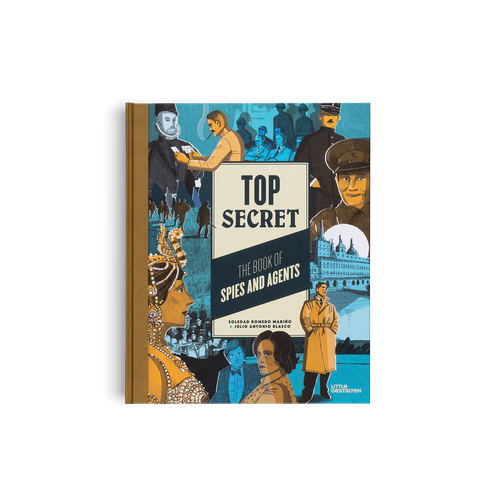
06/2020 architecture & interior Escape
Few places bring hope to the soul like a bookstore. Within the rows of neatly stacked books lies the possibility of transformation, the opportunity of being gripped so tightly by a story—real or imagined—that it changes forever the way we view the world. While reading itself may be an act we perform (mostly) in solitude, the stories we uncover and the knowledge we gain from books is something we feel compelled to debate, discuss, and dissect—even with strangers. The genesis of those heartfelt conversations often begins within the walls of a bookstore.
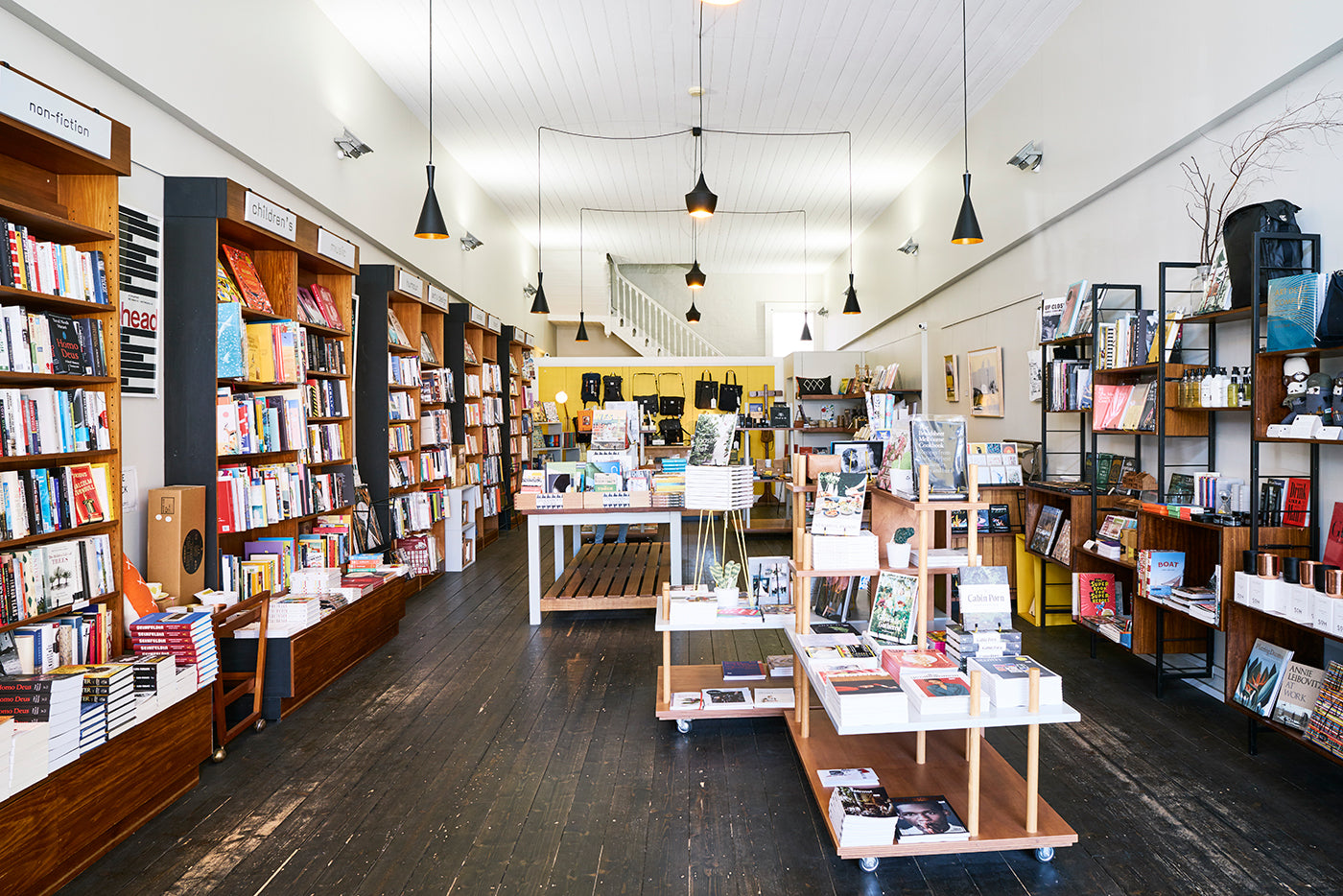
Happy Valley is a blend of bookstore and record store, and you can also buy art prints and small gifts. Everything that can be bought from here is intended to make the purchaser happy: the bookstore’s name is no mere coincidence. (Photo: Kristoffer Paulsen, Do You Read Me?)
The role of the bookstore owner has long been to assist us in this journey. Bookstore owners have an uncanny ability to read the needs of a customer (even those they never speak to) and find them a book. They also love telling tales. These people who understand that the created experience is so much more than sharing physical items for sale, and they are the ones who have been able to cultivate communities that stay loyal to their stores, regardless of cheaper, faster or closer alternatives. But how? By creating experiences that offer the opportunity for a genuine connection between the bookstore and its audience. The key to building those experiences is knowing who your audience is. What do they most long for from a bookstore? Why are they visiting it? How can you best uncover, then serve, their needs?
For Happy Valley bookstore owner Chris Crouch, knowledge of his audience resulted from being a member of it himself. Located in Collingwood, an inner suburb of Melbourne, Australia, Happy Valley is known for its impeccably curated collection of stunning books, ranging from design and decor to food and fashion. While the bulk of the store is devoted to books, Happy Valley also sells gifts produced by local designers and makers. As a resident of Collingwood for more than two decades. He has been able to tie in-store events and activations with local businesses, including The Design Files and The Cancer Council. These not only strengthen the bond of the store with its local community, but broaden its offerings and, in turn, potentially encourage customers. "From that, your community will grow," he says. Besides, Crouch also believes that working in the store and initiating conversations with customers daily aids in cultivating community.
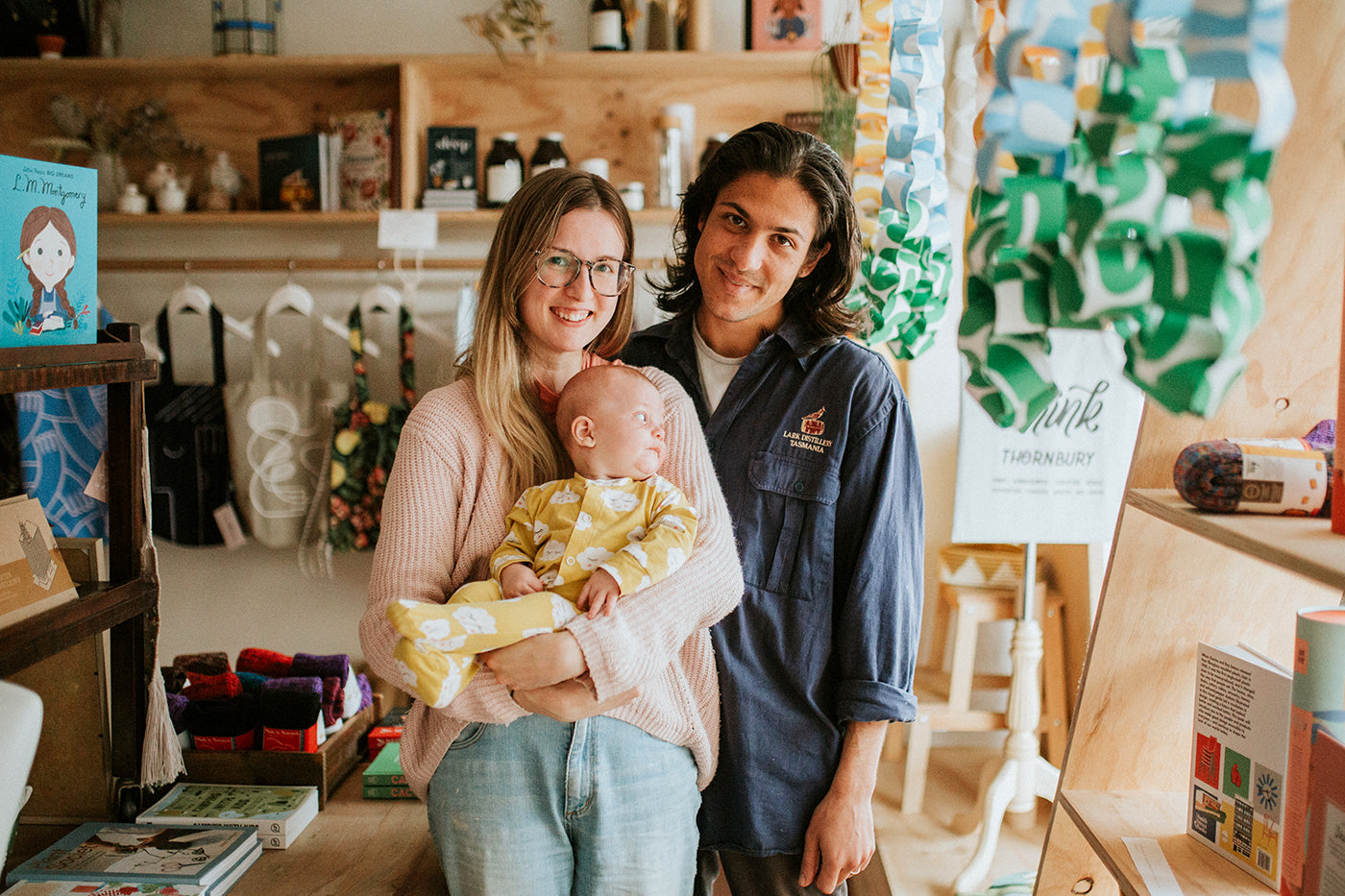
Maggie May and Joshua Kelly also host creative workshops at their bookstore, Think Thornbury. (Photo: Catherine Elise, Do You Read Me?)
One exercise to detect what your audience wants is to consider what piques their curiosity. What does each person value? What do they believe? What type of event or activation would and ensure that they attend? Are they new moms wanting to learn from parenting experts? Are they first-time homebuyers eager for a workshop on budgeting? Are the designers looking to understand their craft on a deeper level? How might you not only offer books that speak to these needs but offer experiences that do as well? How might physical spaces create curiosity?
“When we started, we had a clear objective that we wanted to create a community space that had a retail aspect to it,” artist Maggie May explains. She and her partner, musician Josh Kelly, run Think Thornbury, a bookstore, workshop venue, and creative space in Thornbury (Melbourne, Australia). They choose 'Think' because they wanted the space to encourage thought around our interactions with consumable products, and 'Thornbury' to make it clear that we were here for the local community.” Since launching in 2017, the couple has offered an array of community-building experiences for their thinkers, including local music nights, clothing exchanges, public talks, and wellness and meditation events.
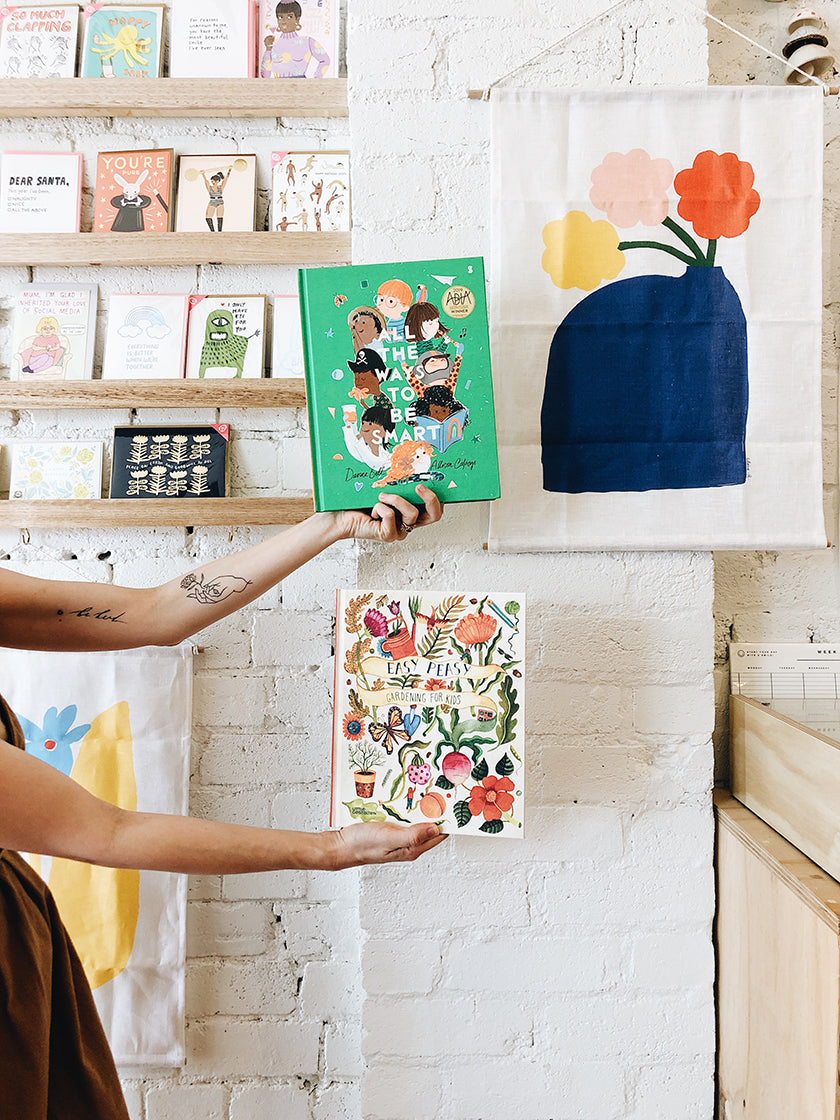
Think Thornbury focuses on supporting local artists. (Photo: Catherine Elise, Do You Read Me?)
Bookstore owners should consider the difference between a shop and a community-focused shop, according to Maggie May. The former follows a traditional business model, while the latter goes a little deeper into fostering a community. There are several different aspects to this. Firstly, what is your role within your local community? If you are a bookstore, then you might be to provide thoughtful gifts to the community and to spread and nurture ideas. Secondly, you must think about your suppliers. Champion local suppliers. Finally, what can you do with your premises that go beyond selling products? What type of events or talks can you host? Can you run a fundraiser? Can you offer a space to support people in your community who struggle with mental health or another cultural issue?
"Be different and do not try to beat the competitors on price. If you are different, you will build up a loyal core"
May is quick to point out that the duo had no marketing budget when they began. They utilized the word-of-mouth promotion that results from successful in-store experiences to help propel their business forward. They published their events by talking with other locally-minded organizations, collaborating with local makers, and showing up regularly on social media. Slowly, the word got out, and we have now arrived at a point where we have a real community around us.
While an instant community is a good idea, the reality for most bookstore owners is that being able to achieve one only comes with time. Readings, one of the most iconic bookstores in Australia with seven locations across the country, has been working on nurturing its community since its doors first opened in Carlton in 1969. In doing so, it has consistently found new ways to connect with and engage its audience. “The best idea was and continues to be, our events program,” says Mark Rubbo, the managing director. When they began in 1985, they were the only bookstore in the country doing it. He says, "Having a regular events program meant that we had to communicate it, and that meant we had to start a magazine to publicize it. Through the magazine, we had to develop a mailing list; as postage costs went up, a website and social media was a cost-effective way of reaching more people. Of course, most good bookstores now have event programs, but it is effective in bringing people together and building community.”
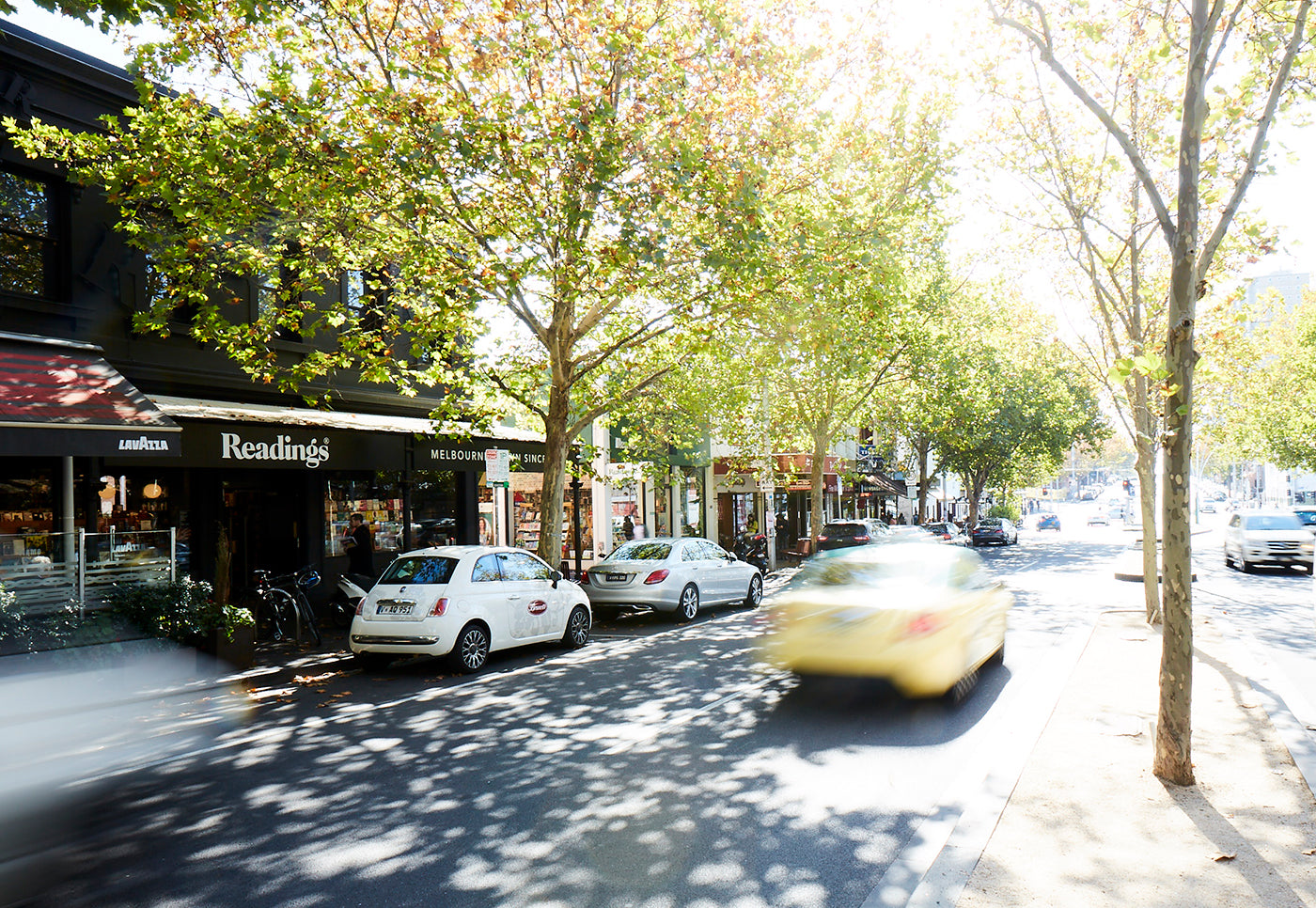
The independent bookstore Readings has held its own against a big chain thanks to its loyal base of customers. Owner Mark Rubbo was awarded the Medal of the Order of Australia in recognition of his literary endeavors. (Photo: Chris Middleton, Do You Read Me?)
Live events allow locals to advertise rooms for rent and jobs on the store windows. Readings have always been community-led—a trait that allowed them to withstand conglomerate American bookstore chain Borders opening across the road, who eventually closed. The battle then went digital, fueled by eCommerce online-only retailers. But they survived! Presently, it runs close to 400 events per year. Rubbo's advice to others is "be different and do not try to beat the competitors on price. If you are different, you will build up a loyal core.”
Yet, for bookstore owners just starting, the concept of being different can be daunting. One tactic s to consider the different needs your audience has in all stages of the buying cycle (awareness, research, evaluation, purchase, and post-purchase advocacy). Mapping a customer journey from the moment someone hears of your store to potentially becoming an ambassador is one of the best ways to build a community. What could you do at various points in the buying cycle to help them engage with your store and attract others to it? An annual fundraising event? A monthly get-together? A weekly literary podcast or Facebook Live stream? Or perhaps your difference will be shown through more staff training to help understand customers online and offline. By mapping the ideal customer journey, you begin to see the points at which the community helps both your bookstore and its audience grow.
"Offer to publicize what they do or host events for them so that they see you as an important part of their book culture"
Another way a bookstore can differ from its competitors is to collaborate with people and brands that strengthen your brand story. “Shops stand for something,” says Crouch, “don’t be too broad. Stick to your strengths.” For Maggie May and Josh Kelly, giving back to their local community is a crucial part of their brand story. The duo decided to create an online auction when bushfires swept across Australia in early 2020. The proceeds of which were donated to help those impacted by the fires. Using social media to promote this, they became inundated with offers. Over 150 people donated a product or service. The weekend auction raised more than $19,000 for charity and further strengthened its connection with the community. Likewise, Readings have been able to forge a group by seeking out relevant community-minded collaborators.
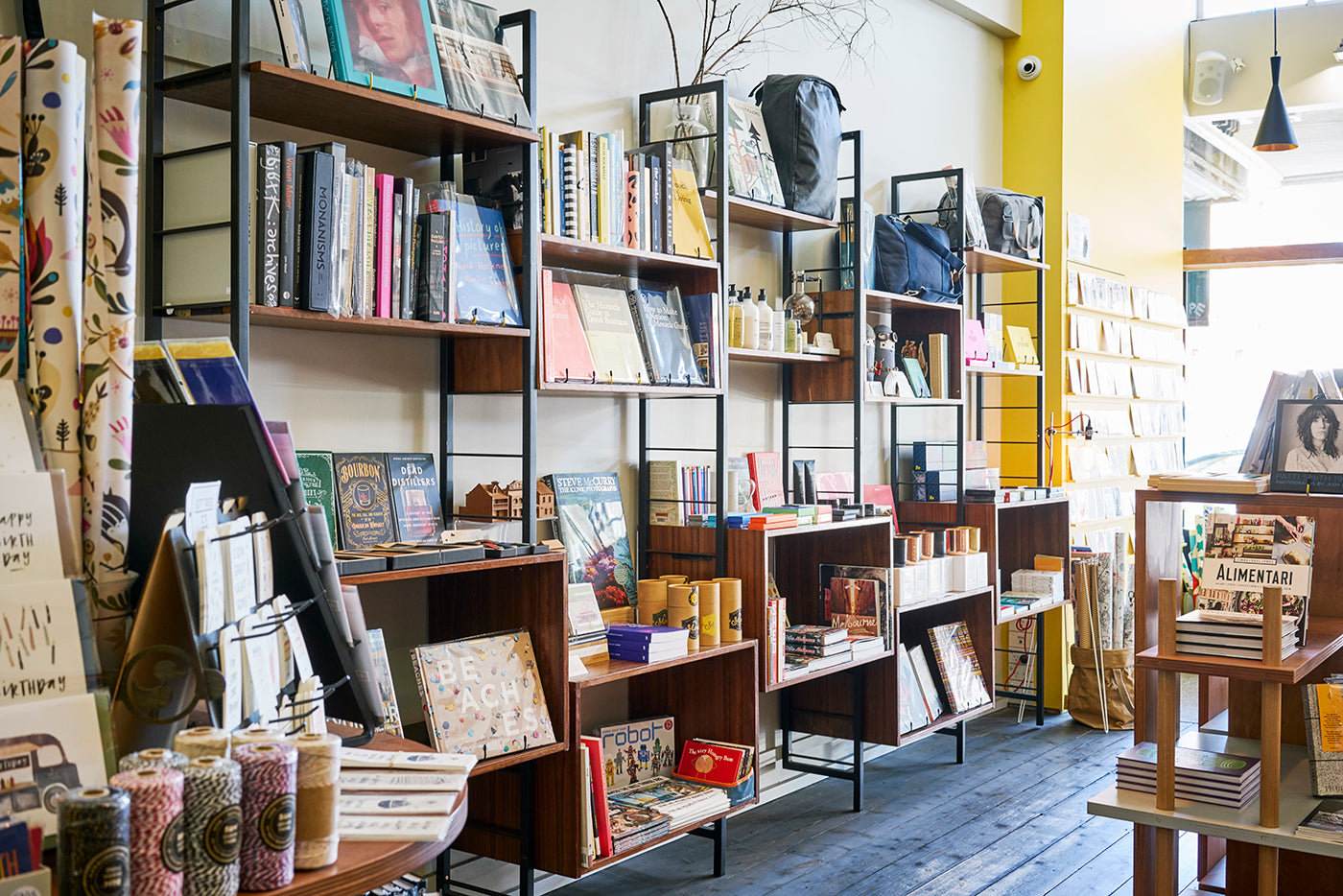
Pretty, whimsical little trinkets and gifts can be found between the hand-picked books at Happy Valley. (Photo: Kristoffer Paulsen, Do You Read Me?)
“The best way to build a community when you are starting is to reach out to local gathering places and organizations," says Rubbo. Places like schools, kindergartens, libraries, neighborhood associations, and mother groups. "Offer to publicize what they do or host events for them so that they see you as an important part of their book culture,” he explains
It takes hard work to curate an original offering, but your store will be more popular as a result. Crouch agrees. For him, the biggest lesson is never to stand still. He says that retail needs "constant change." Happy Valley reflects the local interest with lots of thoughtful design books. They only stock what excites them. "If my work doesn't excite me, how can I expect my customers to be,” Crouch explains. Ultimately, cultivating a community is about forging relationships. People may, in time, forget the details of the book they bought from your store, But if the store provides passion beyond products, they will never forget the experience and how your store made them feel.
Lose yourself in the pages of the most innovative, beautiful, and charming bookstores around the world through Do You Read Me?



